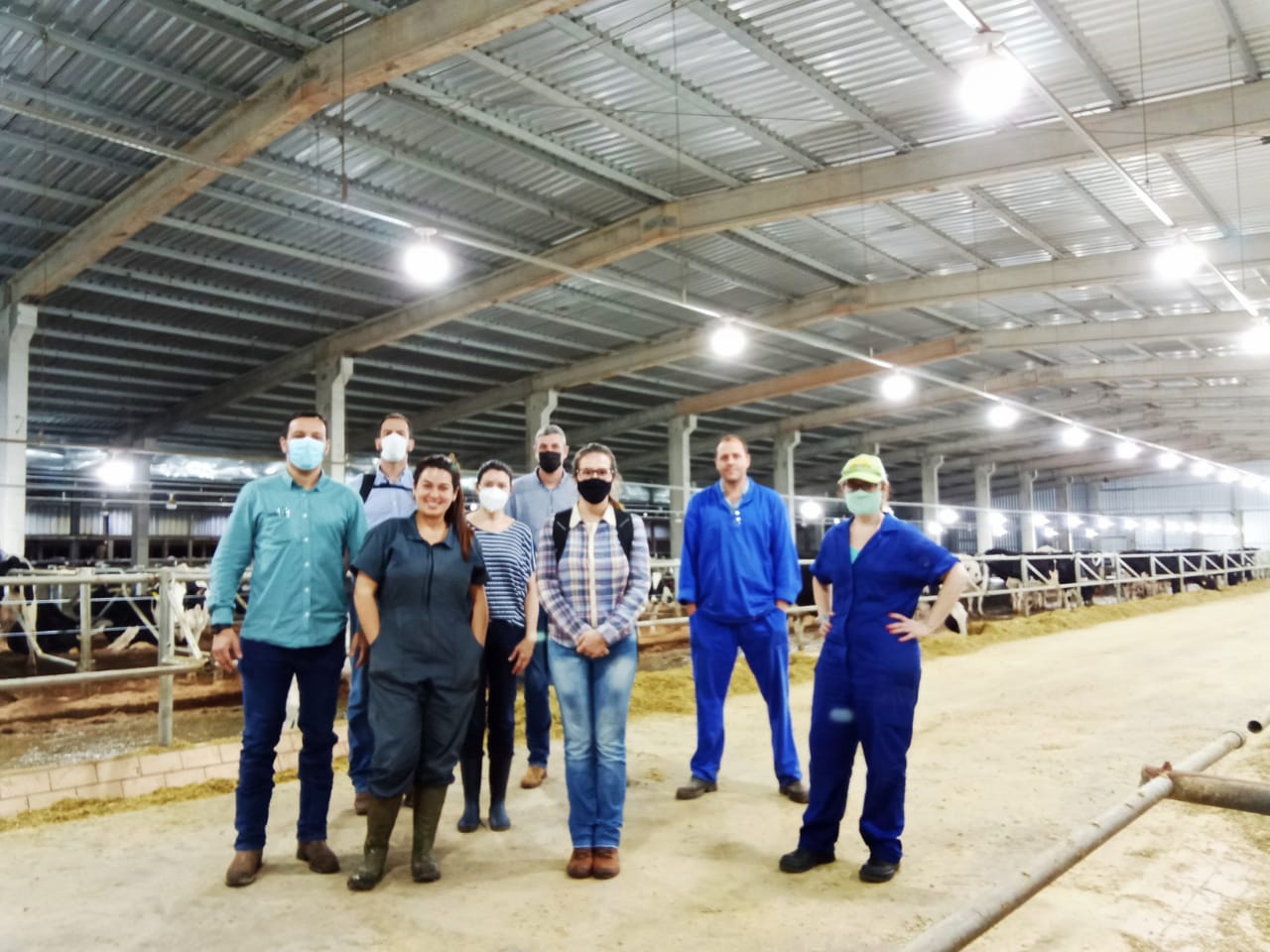Case Study - Animal Welfare Certifications in QIMA/WQS Dairy Cattle
Cargill is a company that offers food, agricultural, financial and industrial services and products. Together with farmers, customers, governments and communities, she has helped people and businesses thrive with the application of ideas for over 155 years. In Brazil, the company since 1965, maintaining its purpose of improving food safety and progressing with food system innovations. For this, it strengthens the partnership with the production chain daily, with an ethical and quality performance in all processes.
Nutron is the brand responsible for Cargill's animal nutrition division in Brazil. Leader in production solutions in the segment, Nutron has been operating since 1995 in direct connection with the demands of the producer, taking quality and care to contribute to the success of each client's business.
And the company knows that, to achieve this objective, it is necessary to implement certifications and quality seals that can attest to the safety of the entire production process, from the delivery of the product to the final consumer's table.
Case Study
In search of an independent certifier with similar purposes in terms of quality and commitments to society and the rural producer, Nutron/Cargill joined forces with QIMA/WQS to put into action a project of technical support and certification of well-being. animal being, specifically directed to the dairy cattle sector.
The challenge
Nutron/Cargill had a major internal challenge: to strengthen a purpose, a change of mindset within the industry, including among the most efficient farms. Today, the company's thinking is that it is not possible to summarize its activities just to sell products, it is necessary to implement a cohesive program that, independently and sustainably, can improve production on the farms and help them achieve better production rates.
Furthermore, there was a need to promote certification in the market, which goes beyond rigorous proof of excellence and quality in milk production. It was important to reflect with this audience on the role of audits carried out and how they transform the production process.
The process
QIMA/WQS presented a differentiated proposal that contemplated the audits with a view not only focused on improving production with respect to the animal, but also on improving the processes adopted by the producer. For Nutron/Cargill, this improvement step was essential, as competing companies do not usually take this important factor into account and this is connected with one of the company's core values: doing the right thing!
Initially, a part of the QIMA/WQS independent verification process was to review compliance with the requirements for animal welfare certification. Sampling was done with the evaluation of the herd through a targeted methodology, where a number of animals within their specific categories and groups were scored to generate an estimate of the prevalence of several critical points. The categories evaluated were defined based on the risk for each point of care based on data from the scientific literature, CowSignals® methodology and PAACO (Professional Animal Auditor Certification Organization) audit guidelines.
The objective of this type of sampling is to accurately estimate the prevalence of a problem in the herd and focus on the parcel at risk. The points of attention evaluated by animal category were: locomotion score of the herd, hygiene condition, body condition, leg injuries, broken tails or tails, until the evaluation of water quality, bedding, thermal comfort and handling of animals in general, which also includes embarkation, disembarkation and sick and/or hospitalized animals.
Evaluation and implementation

The audits were carried out by a professional duly certified by PAACO, who carried out a detailed on-site assessment of the property, defined as “Certification or Recertification Audit”, covering the verification of documents, the management model adopted, and the direct observation of the animals. of the herd and personnel involved. Employees were interviewed regarding their roles, responsibilities, daily activities and training.
The certification provides an additional assurance of safety and trust, which assures customers and partners that their products have been inspected throughout the entire production process.
For Nutron/Cargill, the ease of communication with the QIMA/WQS team was one of the positive points, involving security in sharing ideas, discussing problems and coming up with solutions together. In addition, standardization and methodology facilitated and ensured the entire journey. A very simple and clear line of work was presented on how Nutron/Cargill and its suppliers should act, elucidating each part of the process, including costs.
With the certification, the animal welfare seal was also implemented.
Results
Months ago, Nutron/Cargill internally presented the launch of the animal welfare seal on suppliers' products and it was a success! According to the company, the success was due to the audit's grounded points, that is, an inspection that points out everything that producers need and provides the necessary support before carrying out this analysis.
“I recommend QIMA/WQS for the team that has been very available to solve problems, not only in terms of professionalism and service provision, but in full support for any unforeseen or problem that you may have during the process! In addition, the team has a great synergy between production and animal welfare, with a broad view of the producer and the industry, always bringing more solid solutions and ideas about certification from the first contact”, said Alexandre Pedroso, Consultant Nutron National Cattle Technician and CowSignals certified Master.
The next step, within a few months, is for the certification and its entire execution process to be shared with the market and with the final consumer.